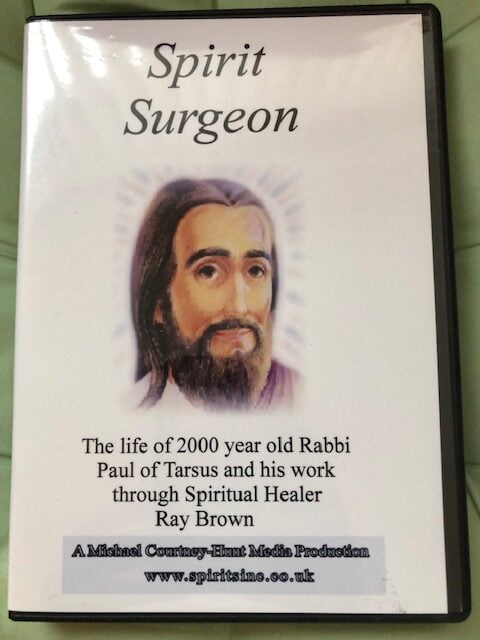In the realm of holistic wellness, the Bahá’í teachings offer a profound and multifaceted perspective on the intricate relationship between healing and intention. Within this framework, the idea of “Healing with Intention” emerges not merely as a technique, but as a spiritual art that resonates deeply with the principles of unity and the sanctity of life. This article endeavors to explore the symbiotic interplay between spirituality and the practice of surgery, unveiling the deep-seated significance that underpins the fascination with healing practices guided by intention.
The Bahá’í Faith posits that all of life is interconnected, and every individual is envisioned as a reflection of the divine. This perspective prompts a reevaluation of conventional healthcare paradigms. The medical arena, often viewed through a purely mechanistic lens, neglects the spiritual dimensions inherent within the healing process. A surgeon, in this context, is not just a practitioner of technical skills; they are a conduit for spiritual and energetic healing, engaging with patients on physical, emotional, and spiritual planes.
One common observation in society is the significant role that intention plays in the healing process. Studies suggest that patients often experience improved outcomes when treated with empathy and genuine concern. This phenomenon can be explicated through the lens of Bahá’í teachings, which emphasize that thoughts and intentions resonate with spiritual vibrations that can influence the healing journey. The act of surgery, therefore, transcends the realm of mere physical intervention. It becomes an act infused with purposeful energy directed toward restoration and balance.
Engaging with this spiritual art involves cultivating mindfulness and a deep awareness of one’s own intentions. Practitioners are encouraged to align their actions with the higher purpose of serving humanity, which can manifest uniquely in the surgical setting. Surgeons, viewed as spirit surgeons, must transcend self-interest, focusing instead on the well-being and sanctity of their patients’ lives. Such an approach fosters a profound sense of trust, establishing a healing environment that nurtures both physical and spiritual recovery.
The importance of intention in the context of surgery extends beyond the surgeon; it encompasses the entire medical team and the patients themselves. A healing environment is created through collective intention—a tapestry of thoughts and emotions woven together to promote recovery. Each member of the health care team, guided by a singular vision of wellness, plays an integral role in co-creating an atmosphere conducive to healing. This collaborative effort underscores the Bahá’í commitment to unity and collective responsibility, illustrating that healing is indeed a shared endeavor.
Moreover, the art of healing with intention necessitates an understanding of the cosmos of the human experience. In this way, the surgeon must possess not only technical acumen but also a broader awareness of the spiritual implications of their work. The Bahá’í writings suggest that each individual is endowed with attributes of God, including knowledge, love, and compassion. By recognizing and nurturing these divine aspects within themselves and their patients, surgeons can effectively channel healing energies that transcend the physical to promote holistic recovery.
Mindfulness practices, such as meditation and prayer, are fundamental to cultivating intention in the surgical arts. These practices serve as conduits for aligning one’s spiritual energies with the healing process. Surgeons may find that integrating moments of silent reflection or prayer into their preoperative routines enhances their focus and determination. Such intentional practices prepare them not only for the technical components of surgery but also for the emotional and spiritual engagement with their patients, embodying a profound respect for the life they are privileged to touch.
In conjunction with intention, the Bahá’í teachings emphasize the power of love in the healing process. Love, described as the highest moral quality, enhances the effectiveness of healing practices. Surgeons who approach their work with a genuine sense of compassion can significantly affect their patients’ experiences. The act of surgery, when infused with love and kindness, transforms the hospital setting into a sanctuary, contributing to a safer psychological space for patients. This emotional backdrop is foundational for healing, as it empowers patients to navigate their recovery journey with hope and resilience.
Furthermore, the dichotomy between body and spirit is crucial in the context of healing practices. The Bahá’í faith advocates that nurturing the spirit is as vital as caring for the body. This holistic interpretation necessitates a revision of healing methodologies in which health professionals are encouraged to address not only the physical maladies but the spiritual and emotional aspects affecting their patients. Attention to mental well-being can mitigate anxiety often associated with surgical procedures, thereby facilitating a smoother recovery process.
Crucially, the implications of healing with intention extend beyond individual patients. The ripple effects are profound, contributing to broader societal health paradigms. The Bahá’í principle of the interconnectedness of humanity suggests that the collective healing of individuals can culminate in societal transformation. Through compassionate care and intention-driven practices, surgeons can inspire a culture of wellness that extends to families and communities, fostering a healthier and more compassionate society.
In conclusion, the act of healing with intention—reverberating through the practices of a surgeon—serves as a profound expression of the unity of body and soul. Grounded in Bahá’í teachings, this spiritual art underscores the significance of intention, love, and mindfulness in the healing process. As practitioners navigate the intricacies of surgical procedures, they are reminded of the powerful impact of their intentions. Ultimately, the journey toward holistic healing not only restores individual health but also contributes to the collective well-being of humanity, reflecting the profound interconnections that bind us all.
